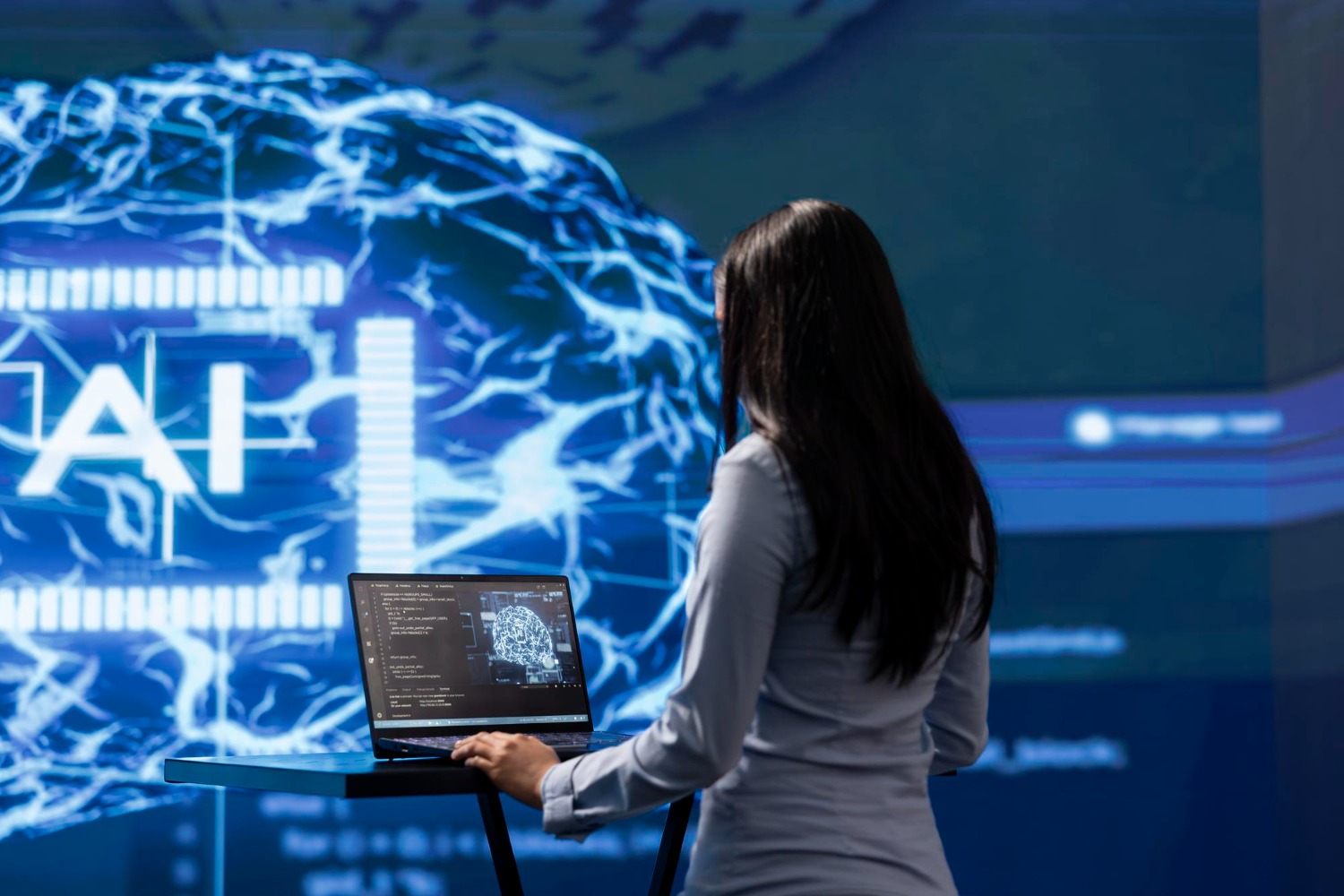AI and DevOps: How CTOs Can Leverage AI for Seamless Cloud Operations
Most enterprise companies today have their operations through the cloud to deliver services on time. As organizations grow, though, managing cloud environments becomes complex. This is where AI comes in to help streamline DevOps workflows, automate processes, and optimize cloud performance.
This requires the Chief Technology Officers, (CTOs) to take a radical step ahead by using AI in DevOps rather than being enforced. Linked directly, directly with the operational and organizational performance, allowing AI-powered solutions to reduce the bottlenecks of operations and organizational processes, enhance the security of organizations, and improve operational systems. But precisely how can AI revolutionize cloud operations? And how should CTOs strategize to extract the most benefit from it?
The AI impact on DevOps, what problems it solves, and how CTOs can deploy AI-enabled solutions for effective cloud management.
Understanding AI in DevOps
What is AI in DevOps?
In DevOps, AI is applied in software development and IT operations through machine learning, predictive analytics, and automation. It’s valuable for troubleshooting, automating mundane tasks, and data-informed decision-making.
With AI integration, businesses can reduce downtime, speed up deployments and enable smoother cloud operations.
How AI Is Improving DevOps Processes
What is intended to be static in a cloud environment just cannot be in a cloud environment. The conventional DevOps process uses extensive manual intervention which causes various inefficiencies and delays by humans in the process. AI enhances DevOps by:
- Automate repetitive tasks such as testing, deployment, and monitoring.
- Use predictive analysis to prevent downtime and prediction of failures.
- Tuning resources to save cloud costs
- Improved security by identifying anomalies and threats.
- Utilization of these capabilities allows businesses to incorporate high availability and reliability into their cloud operations.
Top Domain of AI Impacting Cloud DevOps
1. Monitoring and incident management using automation
Not managing system failures and performance issues is one of the biggest challenges in cloud operations. AI-based monitoring tools sift through massive amounts of data to detect anomalies and predict failures in real-time and ahead of time before they harm services.
AI-driven “log speak” identification tools such as Datadog, New Relic and Dynatrace, for instance, continuously scan logs and other system metrics for unusual patterns. When problems occur, AI can automatically initiate solutions (for example: restart or reload a service that fails to start or allocate more resources).
This not only minimizes downtime but also lightens the operational burden on DevOps teams.
2. Intelligent CI/CD Pipelines
CI/CD: Continuous Integration and Continuous Deployment Continuous Integration and Continuous Deployment an essential foundation aspects of DevOps. AI can supercharge the CI/CD pipelines with the following:
- Identifying and resolving code bugs before they are released.
- Training on data up to October 2023.
- Then predict the deployment risks and recommend rollback, if required.
AI-driven tools like GitHub Copilot and DeepCode assist developers in writing more robust code through enhanced recommendations. This leads to faster and lower-bug releases.
3. AI-Powered Infrastructure Optimization
If you don’t manage and control resources properly, Cloud costs can easily get out of control. AI aids in optimizing infrastructure through:
- Identifying and ending underused instances by analyzing resource usage
- Dynamically scaling resources based on demand.
- Optimally distributing resources by anticipating upcoming workloads.
AI such as Google’s AutoML and AWS’s AI-based recommendations can help businesses fine-tune their cloud spending by automatically adjusting the computing power allocated to them according to actual usage.
4. Security and Threat Detection
In the tunnel of cyber threats, DevOps teams need to be proactive in cloud environment security. AI enhances security by:
- Finding vulnerabilities in application code at the pre-deployment stage
- Identifying abnormal behaviour that indicates an attack may be coming.
- Automated alerts to counter threats in real time.
Some examples of these AI-enabled security tools are Darktrace and Microsoft Azure Sentinel which offer real-time threat intelligence, minimizing the chances of breaches.
5. Artificial Intelligence in IT Service Management (ITSM)
Effective management of IT services is essential for the smooth functioning of cloud services. AI-driven ITSM tools:
- AI-powered chatbots for ticket resolution automation
- Help to proactively diagnose and correct service outages.
- Deliver better end-user experience by identifying solutions quicker.
ServiceNow and BMC Helix are two ITSM platforms that use AI to optimize cloud management.
Best Practices for CTOs to Implement AI in DevOps
Step 1: Identify AI Use Cases
AI is not needed in every DevOps process. CTOs should first assess where AI can provide the most benefit: monitoring, automation, security, etc.
Stage 2: Selecting AI Tools That Align with Your Needs
Choosing the most suitable AI-based DevOps tools is very important. Some popular options include:
- AI for Monitoring: Splunk, Dynatrace, Datadog
- Darktrace, Azure Sentinel | AI For Security
- AI for Automation: GitHub Copilot, Jenkins X
- AI for Cloud Cost Optimization: AWS Cost Explorer, Google AutoML, etc.
Step 3: Train DevOps Teams
AI and machine learning professionals are in demand. CTOs must be investing in upskilling DevOps teams on AI-infused tools and best practices.
Step 4: Incorporate AI into Current Work Processes
Thus AI must be a supplement to your current DevOps process, not an outright replacement. Begin with small automation powered by AI and build up integration from there.
Step 5: Monitor the Performance of AI
AI models require ongoing monitoring and adjustment. CTOs can refine their AI strategies by tracking AI’s effect on efficiency, cost savings and security.

Conclusion
AI is revolutionizing DevOps, enabling cloud ops to be smarter, faster & cheaper than before. AI helps CTOs keep their cloud operational by automating monitoring, optimizing CI/CD pipelines, and improving security.
Successful adoption of AI demands careful planning, however. CTOs need to figure out the right use cases and which tools to select and ensure their teams can work with AI-driven solutions.
As AI technology progresses, its part in DevOps will only expand. Organizations that will adopt AI today will be the best positioned to leverage it tomorrow, managing cloud operations successfully.
Is AI something that you would use in your DevOps strategy? Now is the time to maximize its potential.




